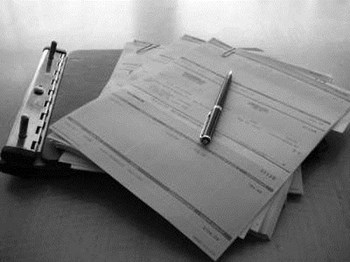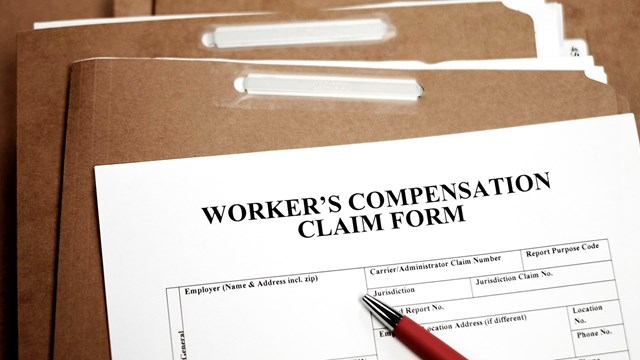
Few experiences can rattle the collective confidence of a co-op or condo community as much as charges of fraud. Trusts are broken and faiths betrayed, all in the name of personal gain. Boards and residents can protect themselves, though, and go a long way toward ensuring that the trauma of fraud does not happen to them.
Know It When You See It
People bandy the word “fraud” around all the time, but it’s a crime that can be difficult to nail down. First, there is civil fraud, which involves intentional misrepresentation with the intent to cause a loss to another individual or group. Civil fraud is between two parties, which would allow one to sue the other. Criminal fraud, however, can involve similar situations but must break one of any number of New York State laws. Basically, criminal fraud is what the state prohibits under the penalty of criminal liability. Each state has different fraud laws, making an all-encompassing definition difficult to pin point.
The majority of fraud cases for co-ops and condos fall within the civil category, where distinct subtleties differentiate it from theft and other criminal actions. One of those subtleties is intent, says Doug Heller, partner in the law firm of Friedman, Krauss and Zlotlow. “The keys to fraud are intent and misstatement,” he says. Determining intention can get sticky, with conclusive evidence often elusive. “That’s why civil fraud is so hard to prove,” Heller says.
Outright stealing, for example, might not constitute fraud. Kickbacks also might fall outside the purview of fraud. Still, though, just because it’s difficult to pin down does not mean it’s not happening.
Like the ubiquitous cockroach, fraud can turn up in any dark corner, no matter how spotless the environment around it seems. In high-end buildings, in four-family walk-ups, in professionally managed buildings or buildings where casual is king, fraud can take place. It could involve cooking the books or focus on a construction company taking more than its fair share of payment. It could rear its head during a board election where the legitimacy of a vote is called in to play. Or it could be a board member himself, taking a few dollars here and there. Simply put, “fraud is way too common,” says Mark Gilbert of Marks Bookkeeping Services.
Although fraud has been around as long as the laws it violates, it has seen some boom times. “In the old days, when buildings were first being converted (to co-ops and condos), there was a lot of fraud,” Heller says. Managing agents were underpaid. Desperation and, yes, greed, drove untold numbers of managers and brokers into the shadowy world of fraud, taking kickbacks here and there, and working to sweeten a bitter financial situation.
Spotting the Problem
As terrible as the crime of fraud can be, sometimes the victim ends up feeling the need to share some of the blame. That’s because one of the leading causes of crime is inattention. Many cases could have been avoided, or at least severely curtailed, if board members or managing agents were paying closer attention to what was happening both inside and outside of their buildings.
“People who don’t watch their money are asking for it,” Heller says. “The easiest form of crime is stealing. A tremendous number of board members just don’t watch the money. There’s money missing when there shouldn’t be, and they don’t see it. Apathy is the biggest problem. There’s too much trust going on.”
Gilbert agrees. “Most people don’t even take the time to look at the checks that are going through,” he says.
The real estate industry has suffered through two recent kickback scandals in the mid- and late 1990s. In 1999, 30 management company owners, agents and contractors were indicted for taking kickbacks for contract work at many New York City co-ops and condo buildings. During that sweep of corrupt companies, two of the city’s larger management businesses—Marvin Gold Management and Elm Management Associates—were accused of taking millions of dollars in payoffs from contractors for work at luxury cooperatives, as well as low- and middle-income buildings throughout the city. One manager in the center of the controversy was accused of taking a total of nearly $4 million in kickbacks from contractors for work in some 74 buildings.
Not paying attention can lead to similar situations, as for example, the former building manager, who was forced to return tens of thousands of dollars in funds acquired fraudulently from clients. And another incident involved a board president who felt it would be a great idea to use the building’s staff, contractors and even supplies to renovate and improve her summer home—an idea that not surprisingly fell very flat with fellow board members and residents.
Using the Eagle Eye
No one can keep his eyes peeled for fraud 24 hours a day, seven days a week, so for what particulars should people be on the lookout? First, people should be vigilant in any situation where money is exchanged for products or services. New construction bids can be padded with hidden, unrelated charges that could be considered fraudulent. The same can happen with repairs and maintenance charges.
Building supply charges also offer an easy way for someone to fleece the building. “People should be familiar enough with their vendors to know what normal accounts payable amounts are,” Gilbert says. If they use Staples, for example, and notice one month that the charge is way out of balance, that could be a sign of someone inside the building making the usual payment to Staples but keeping the excess dollars for themselves or using building money to buy supplies for their own purposes. “Know how much is usually charged by each vendor each month,” Gilbert adds.
It is important, too, to keep on eye on the checks and cancelled checks that flow in and out of the building. “Co-ops and condos rely on their bookkeeper and don’t take the time to look at checks and signatures,” Gilbert says. “Do they recognize their own signatures on these checks? Do they recognize the vendor name?”
People should also be monitoring bank statements closely, making sure that things add up and are in line with expectations. In one manager’s case, some clients did not realize anything was amiss until months or years had passed. By that time, it could have been too late to have any hope of getting your money back.
Caught In the Act
What can be done to prevent fraud in a building? With some added measures, board members and managers can deter potential defrauders, making it difficult enough to ultimately not be worth the effort.
To prevent situations such as embezzlement, Heller suggests two signatures on checks. “It’s burdensome,” he says, but it will certainly cut down on people not knowing where checks are going or who checks are being issued to. And if some checks should not be being written at all—such as a check to a board member signed by that board member—then this is a surefire way to stop that from happening.
Being vigilant means extra work and effort, but it will pay off. “[Hypothetically], how inconvenient would it be to have every check signed by every board member?” Heller asks. “It would be incredibly inconvenient, but it would work.”
Gilbert suggests a cohesive series of checks and balances. “[Board members and managers] should be monitoring each other and the system,” he says. He also encourages boards to engage in regular audits of the building’s books. “They should already have an accountant auditing the books,” he says. If it’s not an accountant, “someone needs to be reviewing the records on a regular basis.”
While the thought of board members watching other board members or employees monitoring each other may make some people uncomfortable, it’s important to remember that many fraudulent acts would never happen if it were not for the complicity or active assistance of someone “on the inside.”
If board members do suspect that fraud is taking place, they should act. “If there’s smoke, there’s usually fire,” Heller says. The first course of action should be to call in a professional. “If they suspect anyone of fraud, then they should go to their lawyer,” Heller says. An attorney can help bring the fraud to an end and begin the process of reclaiming what was lost.
Because fraud can be difficult to prove and because so much of it is civil fraud, many perpetrators do not face criminal charges or prison time. Besides, as Heller says, “how does someone going to jail help you? You have to stop the bleeding first, and if you can get restitution later, then great.” That was the outcome of the Barron case, with the former manager required to return large sums of money to the buildings from the boards she defrauded.
Insurance offers another consolation in the event of fraud. Fidelity bonds and employee dishonesty policies can protect buildings against significant financial loss in the event that a staff member commits an act of fraud or other similar activity. Knowing that protection is there can go a long way in alleviating some of the worry related to issues of fraud.
In the final analysis, diligence is the best defense against fraud, as with any crime. Just as people keep their briefcases locked or purses tucked close to their sides to prevent theft, so too should board members and managers be on guard against costly, confidence-shaking acts of embezzlement, kickbacks and other forms of fraud. Keeping an eye on the little things will go a long way toward keeping those large problems at bay.
Liz Lent is a freelance writer and a frequent contributor to The Cooperator.






2 Comments
Leave a Comment